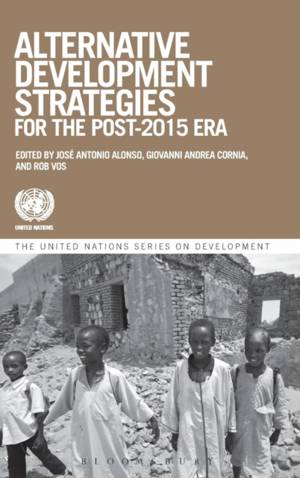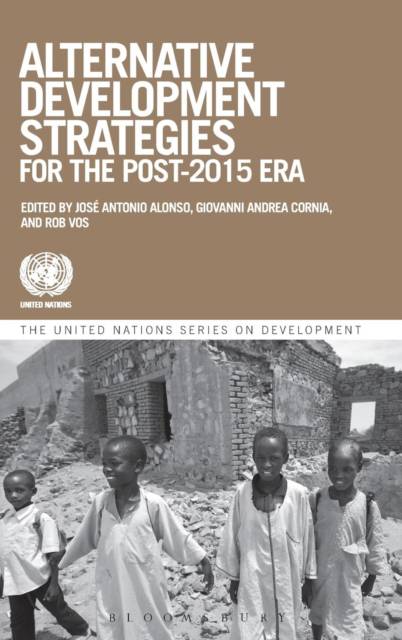
Bedankt voor het vertrouwen het afgelopen jaar! Om jou te bedanken bieden we GRATIS verzending (in België) aan op alles gedurende de hele maand januari.
- Afhalen na 1 uur in een winkel met voorraad
- In januari gratis thuislevering in België
- Ruim aanbod met 7 miljoen producten
Bedankt voor het vertrouwen het afgelopen jaar! Om jou te bedanken bieden we GRATIS verzending (in België) aan op alles gedurende de hele maand januari.
- Afhalen na 1 uur in een winkel met voorraad
- In januari gratis thuislevering in België
- Ruim aanbod met 7 miljoen producten
Zoeken
Alternative Development Strategies for the Post-2015 Era
€ 220,45
+ 440 punten
Omschrijving
The global economic crisis of 2008-2009 exposed systemic failings at the core of economic policy making worldwide. The crisis came on top of several other crises, including skyrocketing and highly volatile world food and energy prices and climate change. This book argues that new policy approaches are needed to address such devastating global development challenges and to avoid the potentially catastrophic consequences to livelihoods worldwide that would result from present approaches.
The contributors to the book are independent development experts, brought together by the UN to identify a development strategy capable of promoting a broad-based economic recovery and at the same time guaranteeing social equity and environmental sustainability both within countries and internationally. This new development approach seeks to promote the reforms needed to improve global governance, providing a more equitable distribution of global public goods. The contributors offer a critical evaluation of past development experiences and report on their creative search for new and well-thought out answers for the future. They suggest that economic progress, fairer societies and environmental sustainability can be compatible objectives, but only when pursued simultaneously by all.
The contributors to the book are independent development experts, brought together by the UN to identify a development strategy capable of promoting a broad-based economic recovery and at the same time guaranteeing social equity and environmental sustainability both within countries and internationally. This new development approach seeks to promote the reforms needed to improve global governance, providing a more equitable distribution of global public goods. The contributors offer a critical evaluation of past development experiences and report on their creative search for new and well-thought out answers for the future. They suggest that economic progress, fairer societies and environmental sustainability can be compatible objectives, but only when pursued simultaneously by all.
Specificaties
Betrokkenen
- Uitgeverij:
Inhoud
- Aantal bladzijden:
- 408
- Taal:
- Engels
- Reeks:
Eigenschappen
- Productcode (EAN):
- 9781472532404
- Verschijningsdatum:
- 27/02/2014
- Uitvoering:
- Hardcover
- Formaat:
- Genaaid
- Afmetingen:
- 152 mm x 236 mm
- Gewicht:
- 884 g

Alleen bij Standaard Boekhandel
+ 440 punten op je klantenkaart van Standaard Boekhandel
Beoordelingen
We publiceren alleen reviews die voldoen aan de voorwaarden voor reviews. Bekijk onze voorwaarden voor reviews.








